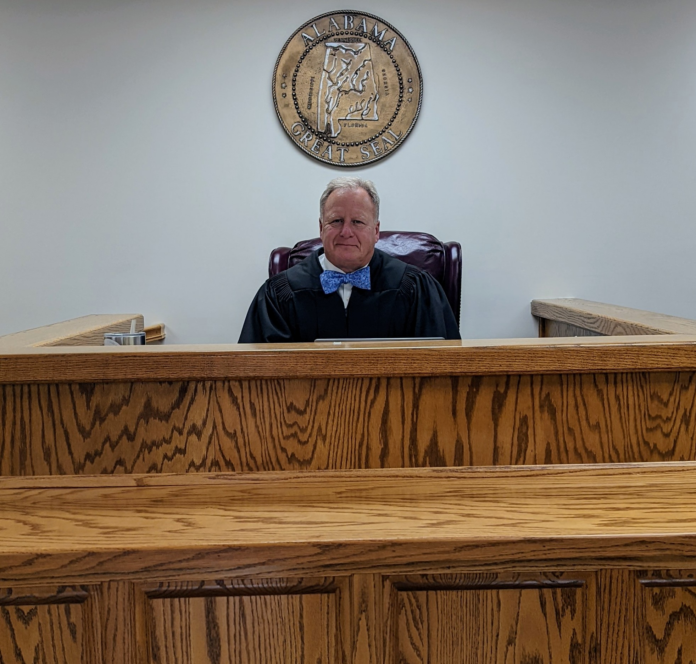CULLMAN, Ala. – Presiding over the courtroom on the second floor of Cullman County Courthouse, Judge Rusty Turner carefully reviewed each case, assessing the progress of each offender who stood before him.
The defendants reviewed by the district court last week were not the run of the mill criminals. They were the veterans of the United States Armed Forces, formerly tasked with the defense and security of our nation.
One of Cullman’s diversionary court programs, the Cullman County Veterans Court offers men and women who have been charged with a criminal offense (no class A felony nor bodily harm to the victim offenses) the opportunity to enter the structured program which requires at least a one-year commitment on average.
Judge Turner explains, “It’s an opportunity to reach out to a segment of our population that deserves a little bit of grace just for the simple fact of their service. Veterans Court goes right along with our Drug Court and the soon to be Mental Health Court in that there’s an underlying issue that caused this abhorrent behavior and often it’s related to some service-related issues. Not always but sometimes.”
The three-phase program requires the veteran to appear before the court at least once a month. Additionally, he or she may be required to seek mental health services, substance abuse counseling and treatment, job training and other counseling deemed necessary by the court.
Army Aviation Veteran Clint Stidham graduated from the program, one of the court’s many successes. Stidham served from 2011-2014 and found himself in crisis five years after leaving the military.
Stidham shared, “In 2019, I received some charges when I had fallen off and life’s troubles had set in. I’ve been in Veteran’s Court for the past couple of years.
“They’ve worked with me and helped me get reestablished with the community. I’m actually working with the VA in Johnson City, Tennessee now.
God found me over the past three years. I’ve learned to get up and be a productive member of society again. I get up every morning at 6:00 a.m. and go to bed at 9:00 p.m. I take all of my healthy, mental health medication and do all of the things that we’re supposed to do. As a result, life has become easier. My son has welcomed me back into his life and that is priceless.”
Stidham and the other veterans who work their way through the program are not alone. The court provides each participant with a mentor; a veteran who volunteers their time to guide their mentees along the path of rehabilitation.
Former VFW post commander Will Harris explains why the mentorship is important to him.
“For me, it’s a one-on-one thing. It’s an opportunity to work one on one with a vet. A lot of the things we do is in a group setting but this is a chance to work one-on-one to help another vet.”
The mentors answer their phones whenever their vet calls, gives them rides to appointments and even takes them to church. Most importantly, they can relate to their mentee, as only another former servicemember can.
Harris sums it up with, “When it gets down to it, I’m an old sergeant major and I may be retired 25 years, but I can’t put it down. Once you’re there, you’re always there.”
Copyright 2022 Humble Roots, LLC. All Rights Reserved.




















